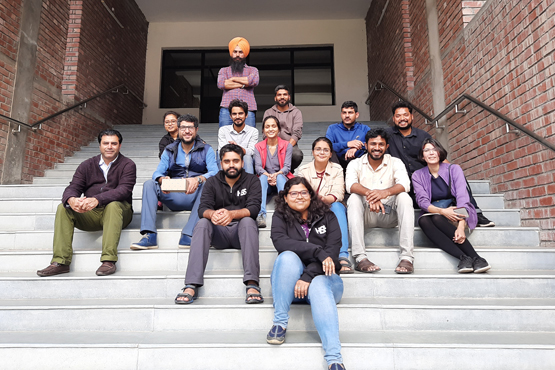What is the role of Humanities and Social Sciences (HSS) in a science institute? The answer lies in the IISER Mohali motto: In Pursuit of Knowledge. We help situate science within the wider framework of society and bring to the fore questions of ethics and aesthetics, of history and philosophy, of poetry and politics. It is in this spirit that HSS has been an integral part of IISER Mohali right from its inception.
The emphasis at IISER Mohali is on interdisciplinary scholarship and integration of teaching and research. All BS-MS students at IISER Mohali are required to take at least 5 HSS courses. Besides, the department also offers a specialised minor in Science-Society Studies (SSS) as a part of the minor specialization in BS-MS degree. The HSS courses are well integrated into the BS-MS curriculum with the following objectives: to make the students aware of the social/economic/ethical implications of science research, to inculcate an understanding of the historical and philosophical dimensions of knowledge production, to foster critical thinking, and to initiate an interdisciplinary dialogue. In teaching these courses, we see our role as transformative in the educational process of scientists – we contribute by taking students beyond a mere doing of science to developing an understanding of science as a historically and socially situated practice. In this respect, IISER Mohali students have an edge over students from all other IISERs.
The PhD program in HSS is multi-disciplinary and allows our students to draw from a wide range of faculty expertise. Our students receive strong training in theoretical as well as empirical aspects relevent to their research trajectory.
HSS faculty contributes towards original research that has impact across national borders and across disciplinary boundaries. Areas of research currently represented in the department include philosophy of scientific concepts, history of science and its embeddedness in cultural histories, post-war American literature, archaeology, understanding evolution through paleoanthropology, feminist and critical geographic approaches to labour studies and questions of identity, the intellectual history of the progressive writers association, issues and research related to development economics, work and employment, public economics and policy studies, economics of organization and institutional economics. Our objective in the coming years is to expand and strengthen the disciplinary diversity of our department.

